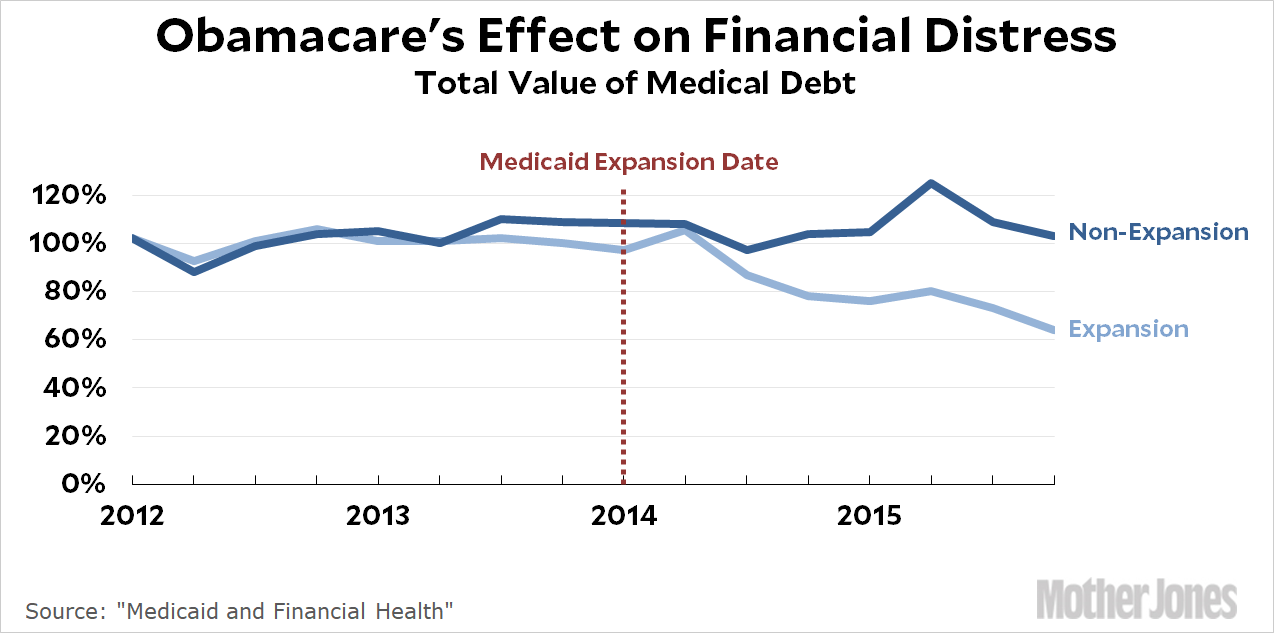It often slips people’s minds that the point of insurance is fundamentally financial. Auto insurance doesn’t prevent accidents, but it keeps you from going bankrupt over one. Ditto for homeowner’s insurance, life insurance, etc.
Health coverage is a little different because, in addition to being traditional insurance, it also pays for lots of routine medical care. Nevertheless, it’s still insurance. You can get medical care without it,¹ but it will cost you a fortune. So when you take a look at, say, Medicaid expansion, it’s at least as important to look at financial outcomes as it is to look at health outcomes.
Via Paul G-P on Twitter, here’s a CFPB study of how Medicaid expansion under Obamacare affected the finances of the poor. The authors take advantage of the fact that some states accepted the Medicaid expansion and some didn’t. They also have access to extremely detailed tradeline data in credit records. Here’s their basic result:

In states that didn’t expand Medicaid, nothing much happened. In states that did expand Medicaid, medical debt fell nearly 40 percent by the end of 2015. As a check, they also examined overall debt, and found that it varied by only a small amount between expansion and non-expansion states.
Note that this is a 40 percent reduction in total medical debt. Since Medicaid is available only to the poor, it’s a good bet that it’s reduced the medical debt of the poor by considerably more than 40 percent.
So: Does Medicaid work? Yes indeed. It has moderate but positive effects on health, and very large effects on medical debt.
¹Sometimes, anyway.













